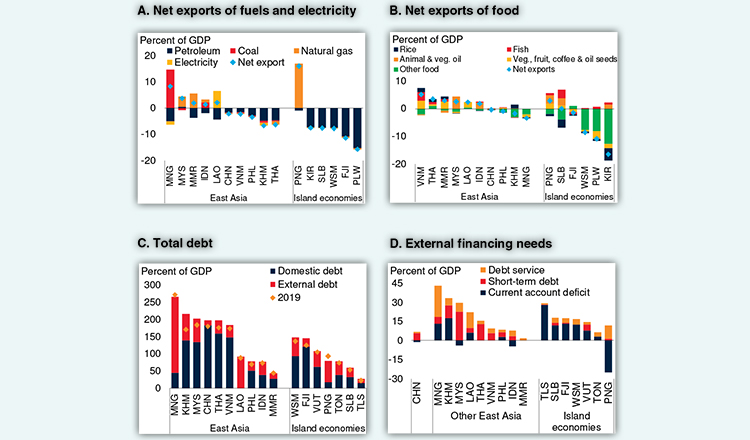Key commodity shortages to hit Cambodia’s economic recovery: WB
Cambodia’s economic recovery could be hit by shortages in essential commodities and raw materials that could disrupt production, according to the Global Economic Prospects released by World Bank (WB) on Tuesday.
Cambodia is among East Asia and the Pacific region’s commodity-importing countries with high dependence on food and fuel imports, the report stated, adding that the economy would likely face the risk of high debt, rising interest rates and weak economic recoveries.
The impact is likely to be concentrated on countries with large external financing needs, which include Cambodia, Fiji, Malaysia, Mongolia and Timor-Leste, according to the report.
A prolonged war in Ukraine and intensifying geographical uncertainty could also further reduce global confidence and lead to a sharper-than-projected slowdown in the region’s exports due to weak global demand, further increase in shipping costs and distorted trade flows, report added.
The Permanent Secretary of State at the Finance Ministry Vongsey Visoth said that currently, the government is continuing to work to reduce the cost of logistics in Cambodia through the introduction of systematic and package-based reform measures as defined in the strategic framework and programmes to rehabilitate and promote Cambodia’s economic growth.
A study conducted by a WB team showed that logistics costs in Cambodia are still high and unstable due to high transaction and shipping costs and unofficial fees, as well as connectivity issues.
The study also addresses a number of short and medium-term recommendations, such as monitoring the effectiveness of trade gates, expanding the best trader scheme, establishing a reporting system, promoting rail transport, strengthening the effectiveness of post-customs inspections, facilitating the transit of goods, planning and multi-purpose transport strategies and regional logistics development planning.
Cambodia’s real gross domestic product (GDP) at market prices is forecast to grow by 1.5 percent to 4.5 percent in 2022 from the estimated 3 percent in the previous year after it fell to -3.1 percent in 2020, but expected to reach 2.8 percent and 6.6 percent in 2023 and 2024 respectively, according to the report.
WB forecasts the GDP growth with frequent updates based on new information and changing global circumstances. However, the finance ministry has forecast that Cambodia’s economy will grow at 5.6 percent this year, while the International Monetary Fund (IMF) projected that the country’s economic growth would be about 5.1 percent and 6.2 percent next year.
According to the Asian Development Bank (ADB), the Cambodian economy is projected to grow at 5.3 percent in 2022 and 6.5 in 2023. The growth in the economies of its major trading partners will be a great boost in supporting the strong momentum of Cambodia’s merchandise exports and inflows of foreign direct investment.
Cambodia has the lowest debt-to-GDP ratio among all developing countries in Asia, which is expected to peak at 38.1 percent by 2028 and settle at around 37 percent of GDP by 2030 – three percentage points below the moderate risk threshold, according to ADB.
Cambodia had historically maintained a low level of external public debt with an average of 30 percent of GDP, or $8.8 billion, until 2020, when the economic contraction and fiscal response policy bumped it up by 7 percent.
Germany, earlier this month, pledged $32.1 million in loans for Cambodia to build grids supplying power to rural areas and to improve energy efficiency.
Cambodia’s Finance Minister Aun Pornmoniroth and German Ambassador to Cambodia Christian Berger signed the agreement on June 2.
Source: https://www.khmertimeskh.com/501091533/key-commodity-shortages-to-hit-cambodias-economic-recovery-wb/


 English
English




